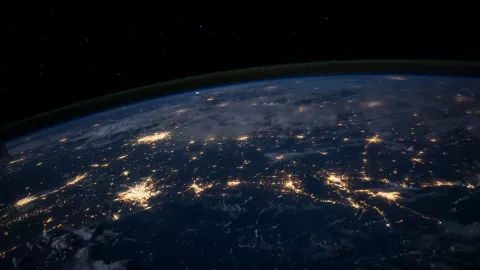Key data
Duration: 60 months
Overall budget: 31M €
Demonstrators: Port of Rotterdam (Netherlands)
Goals
MAGPIE project will address the missing link between green energy supply and green energy use in port-related transport. Focused on complying with EU decarbonization targets (e.g., reduce the GHG emissions of transport by 90% by 2050), the project will study green alternatives (e.g., H2) to supply different transport modalities related with maritime, inland and hinterland activities.
The main objectives of MAGPIE are:
- Demonstrate and integrate low emission energy vectors (e.g., hydrogen, ammonia)
- Enable a direct digital link between logistics streams – the port digital twin
- Autonomous transshipment and transport
- Ensure roll-out through the European Green Port of the Future Master Plan (to be designed within the project)
By demonstrating and implementing smart solutions in the realm of energy (e.g., on-shore power supply), digitalization (e.g., port digital twin) and automation (e.g., autonomous e-barge and transhipment), MAGPIE will facilitate the decarbonization in transport to, from and within ports.
Highlights
- Total of 149 PM’s for EDP NEW
- EDP NEW leading WP3;
- Consortium formed by 45 partners from 6 countries;
- EDP NEW is leading the WP responsible for the design of new energy supply chains (e.g., H2) for different transport modalities
Demonstrators
The MAGPIE ecosystem will be demonstrated in a single location – the lighthouse Port of Rotterdam. 11 different pilots will show how a comprehensive and overarching green transition can take place in a complex environment such as a seaport. All the different transport sectors (i.e., shipping, inland shipping, hinterland) will have dedicated demonstration activities with a particular focus on fuel transition options (e.g., H2, Ammonia, bioLNG). A port digital twin will also be developed to enable real-time exchange of data between assets and tools.
Role NEW R&D
EDP NEW is the WP3 leader of MAGPIE. WP3 is a vital WP to accomplish the MAGPIE goals since it intends to establish a comprehensive portfolio of solutions to decarbonize the port transport activities. Characterize/design these solutions, realize for which transport modalities they can add value and define their roll-out plan is an ambitious and complex process. WP3 is therefore organized into 4 different clusters:
- Cluster 1: Transport energy requirements – Different transport modalities co-exist in the port ecosystem. The definition of their current/future energy needs is a requirement to start the analysis of the different energy vectors.
- Cluster 2: Energy supply chains – Not all the green energy vectors will suit the different transport modalities. It is therefore necessary to establish links between the port energy needs and the new supply chains. Afterwards, a complete description of each supply chain (“from source to plug”) should be carried.
- Cluster 3: Demonstration activities – The electricity and BioLNG supply chains are going to be demonstrated under the scope of WP3. Moreover, in WP5 and WP6 other demonstration activities will occur thus allowing to demonstrate the remaining supply chains (Hydrogen and Ammonia)
- Cluster 4: Long-term vision – A transversal task that will focus on the scale-up potential of the demonstrators
Under this WP, EDP NEW will also lead the tasks related with the electricity (focused on batteries) and hydrogen supply chains.
In WP4, EDP NEW will be responsible for developing an energy matching platform to balance the demand needs caused by the different transport modalities available in port’s ecosystem and the existing (or soon to be considered) new energy vectors.This cross-sector energy management will allow to optimally control the different green sources while contributing to reduce the carbon footprint. Moreover, different flexibility options (e.g., demand side management) will provide their contribution to reach this optimal balance.
In WP7, EDP NEW will also put his efforts and knowhow to help defining non-technological innovations (e.g., pay-for-use principles for low and zero-emission fuel system) capable to contribute to the transition process.
Partners

